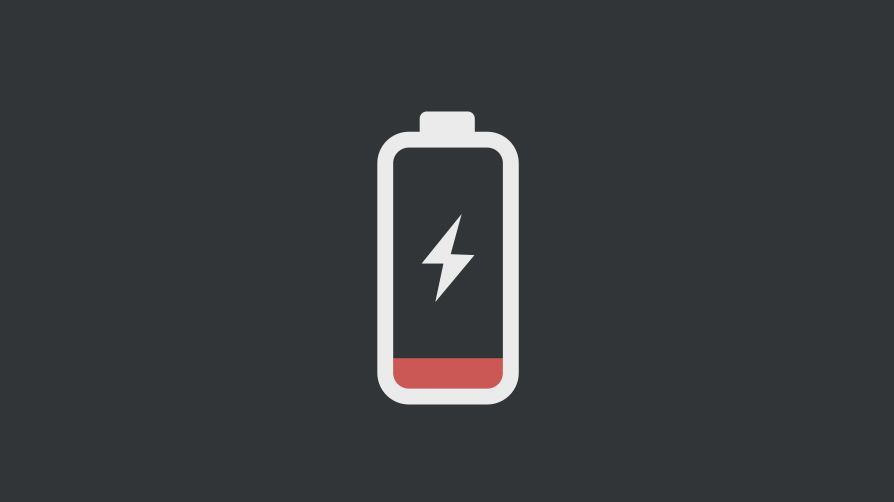

Dr. David Jeremiah Presents
Living inthe Ageof Signs
Online Destination

Living in the Age of Signs
Online Destination
Feeling Drained? The Remedy Might Surprise You
It doesn't happen as often as it used to, but it still happens. Occasionally a car is pulled over to the side of the road with its hood up, steam billowing from the engine compartment. Aside from the obvious embarrassment associated with such an event, there is a resulting hassle of towing the car to a shop for repairs.
What causes this frustrating interruption in our busy lives? The water in the car's radiator drops below a critical level and the engine overheats, boiling the remaining water—and thus the clouds of steam. Sometimes the water level drops suddenly when a radiator hose springs a major leak. But often it is the result of a slow, steady, drip–drip–drip. It is like the straw that breaks the camel's back; at some point, a single drip is going to be one drip too many.
A leaky radiator or radiator hose is the cause of most roadside steam–powered attractions. If enough water drains out of the system through a slow or sudden leak, eventually there's not enough water to cool the engine. The remaining water boils inside the engine and is released as steam through whatever exit point it can find—usually a radiator hose with a weak spot or puncture.
Besides being frustrating, water draining out of the radiator can be very expensive. Running too long on an engine in which the water has drained away will cause the engine to overheat, crash, and possibly burn.
Drains in Everyday Life
Think of all the places where large quantities of water are stored: water reservoirs created by dams, above–ground water tanks in our communities, household water heaters, radiators that heat older homes and buildings—and yes, millions of vehicle radiators. Right now, some of these water reservoirs are leaking but may not be detected for years. A percentage of these will result in some sort of damage—a flooded valley community, a flooded basement, an overheated engine.
Water belongs inside the system, not outside the system. The challenge is to plug the leaks and seal the drains before damage occurs. Water transfer and leaking storage systems create such havoc that a substantial industry has been developed to address it: automated leak detection. Municipalities across the country have installed electronic leak sensors on aging, underground water pipes. Leaking water is lost water. And lost water can lead to serious problems.
Water in the Spiritual Life
Water provides an excellent analogy for our spiritual lives. Jesus stood amid the crowds at the Feast of Tabernacles in Jerusalem and cried out, "If anyone thirsts, let him come to Me and drink. He who believes in Me, as the Scripture has said, out of his heart will flow rivers of living water" (John 7:37–38).
The apostle John added this explanatory word in the next verse: "But this He spoke concerning the Spirit, whom those believing in Him would receive; for the Holy Spirit was not yet given, because Jesus was not yet glorified" (verse 39).
We know that Jesus has now been glorified through His resurrection, ascension, and seating at the right hand of the Father (John 13:31–32). Shortly after those events, at Pentecost, Peter declared, "Therefore being exalted to the right hand of God, and having received from the Father the promise of the Holy Spirit, He poured out this which you now see and hear" (Acts 2:33)—"this" being the poured–out Spirit of God. Peter went on to tell the crowds that all who believe in Jesus "shall receive the gift of the Holy Spirit" (Acts 2:38).
Jesus called the Holy Spirit "living water," and all who believe in Jesus become reservoirs of this living water—the Holy Spirit. Just as water belongs in the system, so the Holy Spirit's ministry is to be present in His fullness in the life of the believer.
Without pushing the metaphor too far, it is safe to say that Christians can experience the power of the Spirit draining out of their life. Like most leaks in water systems, leaks in our spiritual reservoirs happen beneath the surface, out of sight, one drip–drip–drip at a time—until we realize we are completely without power or spiritual health.
Plugging the Spiritual Drains
The New Testament speaks clearly of at least two ways Christians can lose spiritual power and resources: grieving the Spirit (Ephesians 4:30) and quenching the Spirit (1 Thessalonians 5:19).
Here are some ways we can see spiritual power drain out of our lives as our choices negate the work of the Spirit in us:
The drain of materialism. Jesus said: "No one can serve two masters; for either he will hate the one and love the other, or else he will be loyal to the one and despise the other. You cannot serve God and mammon" (Matthew 6:24). In modern language, "mammon" is money—we cannot serve God wholeheartedly if our spiritual power is being drained away in the pursuit of materialism.
The drain of negative influence. Inappropriate friendships and relationships can lead us away from God (Deuteronomy 13:6–9), impact our character and behavior (Proverbs 22:24–25), and cause us to become an enemy of God (James 4:4).
The drain of busyness. Spiritual growth and power take time and effort. Yes, the Holy Spirit does the changing in us, but we make ourselves available to Him through the spiritual disciplines of prayer, Bible study, worship, service, fellowship, solitude, meditation on Scripture, and others. The psalmist wrote, "Your word I have hidden in my heart, that I might not sin against You" (Psalm 119:11). But the Word doesn't get into our life by osmosis. It gets there when we take time to study it, listen to it preached and taught, and discuss it with others.
The drain of envy or jealousy. There is a temptation to envy those who do wrong (Psalm 73; Proverbs 3:31) and to compare ourselves with them (2 Corinthians 10:2). But Proverbs 14:30 says that "envy is rottenness to the bones." Does that sound like the kind of life where spiritual power is being stored up or being drained away? Obviously, the latter.
There are other spiritual drains, of course—but these four represent the tiny leaks that, over time, can allow our spiritual power to dissipate and vanish. And when that happens, we eventually end up like a car pulled to the side of the road with a cloud of steam billowing from beneath the raised hood.
These leaks may seem negligible and insignificant. In the early stages of a drain's activity, they are. One envious thought or materialistic impulse is not going to sideline a Christian. But if those remain unconfessed and accumulate drip–by–drip–by–drip, a tipping point will be reached.
First, we must become aware of our spiritual drains. Then we must do whatever is necessary to plug them! That is the key to keeping our living water where it belongs.


